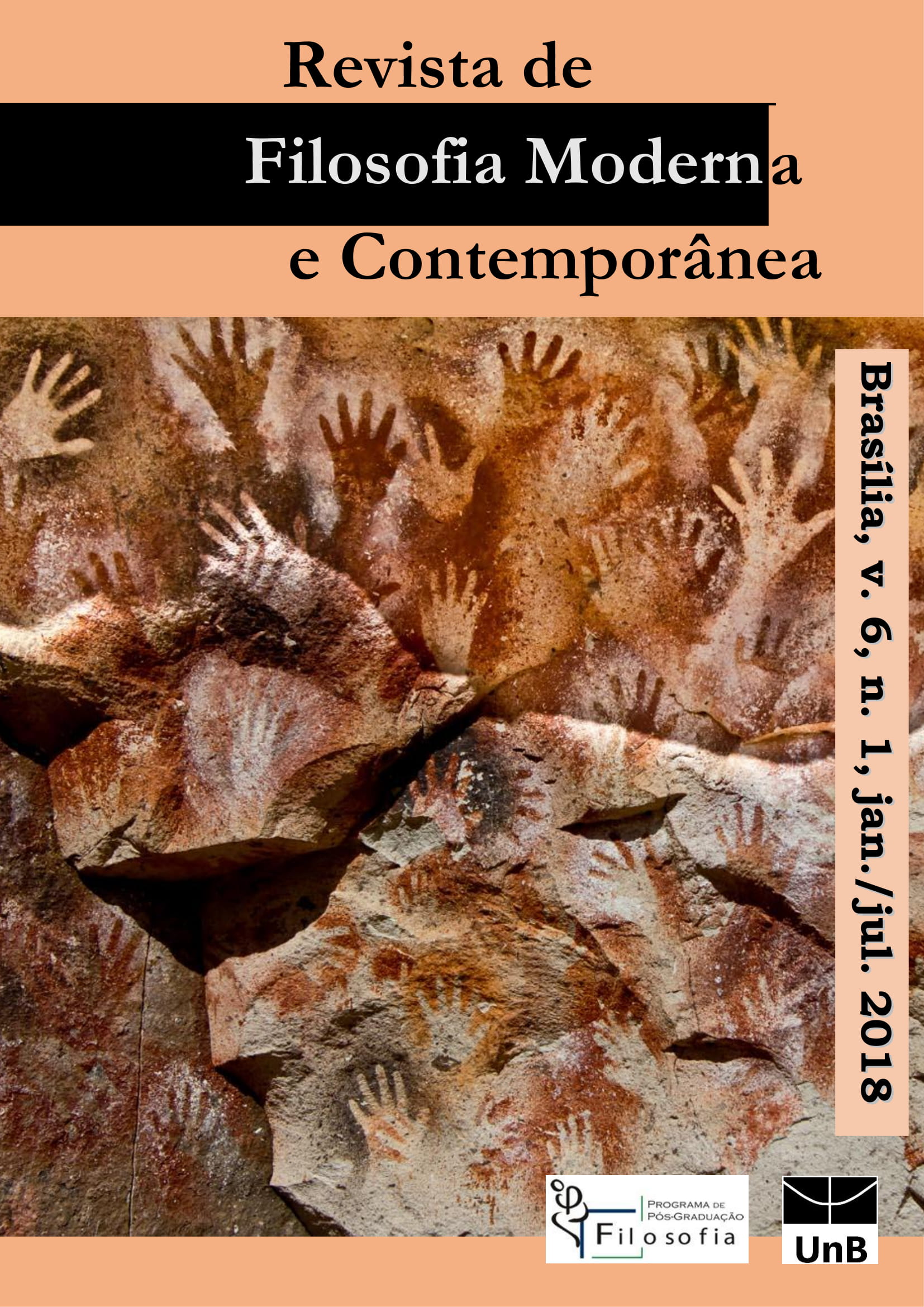Mutations in the Thought Style: Ludwik Fleck and the Biological Model in the Historiography of Science
DOI:
https://doi.org/10.26512/rfmc.v6i1.20236Keywords:
Fleck; thought style. biological model. Kuhn. historiography of science.Abstract
The purpose of this article is to analyze, from the work of Ludwik Fleck, the role of biology and life sciences as a modeling matrix in the constitution of a theoretical and methodological proposal of how to write the history of science; what is here called the “biological model” in the historiography of science. In contrast to the Kuhnian model of history of science strongly inspired by classical physics ”“ although later Kuhn has also referenced in biology ”“, in Fleck, we can find a history of science that is inspired by biology and medicine, presenting a more robust epistemological foundation that, consequently, allows a better elaboration of how to write the history of science. Indeed, analyzing this question we can also see ”“ in addition to the assertion of social and historical aspects in the construction of scientific knowledge as he defended ”“ that his epistemology is also based deeply in the biological referential, thus making the Polish thinker a forerunner of this approach. In highlighting the importance of biology in Fleck’s epistemology, the article also highlights a non-Kuhnian interpretation of the Polish thinker
Downloads
References
ABRANTES, P. “A metodologia da ciência ‘normal”’. In: ABRANTES, P. Método e ciência: Uma abordagem filosófica. Belo Horizonte: Fino Traço.
BACHELARD, G. Le nouvel ésprit scientifique. Paris: PUF, [1934] 2013.
BLOOR, D. Wittgenstein: a social theory of knowledge. London: Macmillan, 1983.
CANGUILHEM, G. O normal e o patológico. trad. Maria Barrocas. Rio de Janeiro: Forense Universitária, [1943] 2009.
CARNAP, R. “Letter to Thomas Kuhn” April 28, 1962. In: Gattei, S. Thomas Kuhn’s linguistic turn and the legacy of logical empiricism: incommensurability, rationality and the search for truth. Aldershot: Ashgate Publishing Company, 2008, p. 180.
CONDÉ, M. “Paradigma versus estilo de pensamento na história da ciência”. In: Condé, M.; Figueiredo, B. (Org.) Ciência, História e Teoria. Belo Horizonte: Argvmentvm, 2005.
CONDÉ, M. “Entre o normal e o patológico: Ludwik Fleck, Georges Canguilhem e a gênese da epistemologia histórica”. Intelligere. Revista de História Intelectual, São Paulo, v.2, n.1 [2], p.51-67. 2016.
CONDÉ, M. “Um papel para a história”: o problema da historicidade da ciência. Curitiba: Editora da UFPR, 2017.
CONDÉ, M. “‘The Philosopher and the machine’: Philosophy of mathematics and history of science in Alexandre Koyré”. In: PISANO, R., AGASSI, J., DROZDOVA, D. (eds.) Hypotheses and Perspectives in the History and Philosophy of Science. Cham: Springer, 2018. p. 43-61.
DASTON, L.; GALISON, P. Objectivity. Cambridge: Zone Books, 2007.
FLECK, Ludwik. Entstehung und entwicklung einer wissenschftlichen Tatsache. Frankfurt am Main: Suhrkamp. [1935] 1980.
FLECK, L. “Some specific features of the medical way of thinking” In: Cognition and fact: materials on Ludwik Fleck, ed. Cohen, R. & Schnelle, T. Boston: Reidel, [1929] 1986.
FLECK, Ludwik. “Scientific observation and perception in general” In: Cognition and fact: materials on Ludwik Fleck, ed. Cohen, R. & Schnelle, T. Boston: Reidel, [1929] 1986.
FLECK, Ludwik. “On the crisis of ‘reality”’. In: Cognition and fact: materials on Ludwik Fleck, ed. Cohen, R. & Schnelle, T. Boston: Reidel, [1929] 1986.
FLECK, Ludwik. Gênese e desenvolvimento de um fato científico, trad. Georg Otte e Mariana Oliveira. Belo Horizonte: Fabrefactum, [1935] 2010.
HULL, David. Science as a process: an evolutionary account of the social and conceptual development of science. Chicago: The university of Chicago Press. [1988] 1990.
HUSSERL, Edmund, Die Krisis der europäischen Wissenschaften und die transzendentale Phänomenologie. In: Biemel, WALTER (Org.) Husserliana. Haia: Martius Nijhoff, 1954. V. vi.
KUHN, Thomas. The structure of scientific revolution. Chicago: The University of Chicago Press, [1962] 1970.
KUHN, Thomas, “Foreword”. In: Hoyningen-Huene, Paul. Reconstructing Scientific Revolution: Thomas S. Kuhn’s Philosophy of Science. Chicago: The University of Chicago Press, 1988.
KUHN, Thomas. The road since structure. Chicago: The University of Chicago, 2000.
LATOUR, Bruno; WOOLGAR, Steve. La vie de laboratoire: la production du fait scientifique. Paris: La Découverte. [1979] 1996.
OLIVEIRA, B. J.; CONDÉ, M. “Thomas Kuhn e a nova historiografia da ciência”. Ensaio: Pesquisa em Educação em Ciências. 4: 2, 2002.
POPPER, K. “Evolution and the tree of knowledge”. In: Objective Knowledge: An Evolutionary Approach, Oxford: Clarendon Press, 1972.
RADNITZKY, G.; BARTLEY, III, W. W. (Eds.). Evolutionary epistemology Rationality, and the Sociology of Knowledge. Chicago: Open Court, [1987] 1993.
REICHENBACH, H. Experience and Prediction: An Analysis of the Foundations and the Structure of Knowledge. Chicago: University of Chicago Press, 1938.
RENZI, B. “Kuhn’s evolutionary epistemology and its being undermined by inadequate biological concepts”. Philosophy of Science, 76 p. 143”“159. 2009.
SHAPIN, S.; SCHAFFER, S. Leviathan and the air-pump: Hobbes, Boyle and the experimental life. Princeton: Princeton University Press, 1985.
SCHUSTER, A. “The pitfalls and possibilities of following Koyré: The younger Tom Kuhn. ‘critical historian’ on tradition dynamics and big history”. In: PISANO, R., AGASSI, J., DROZDOVA, D. (eds.) Hypotheses and Perspectives in the History and Philosophy of Science.
Cham: Springer, 2018. p. 421-452.
Downloads
Published
Issue
Section
License
Copyright for articles published in this journal is retained by the authors, with first publication rights granted to the journal. By virtue of their appearance in this open access journal, articles are free to use, with proper attribution, in educational and other non-commercial settings.


